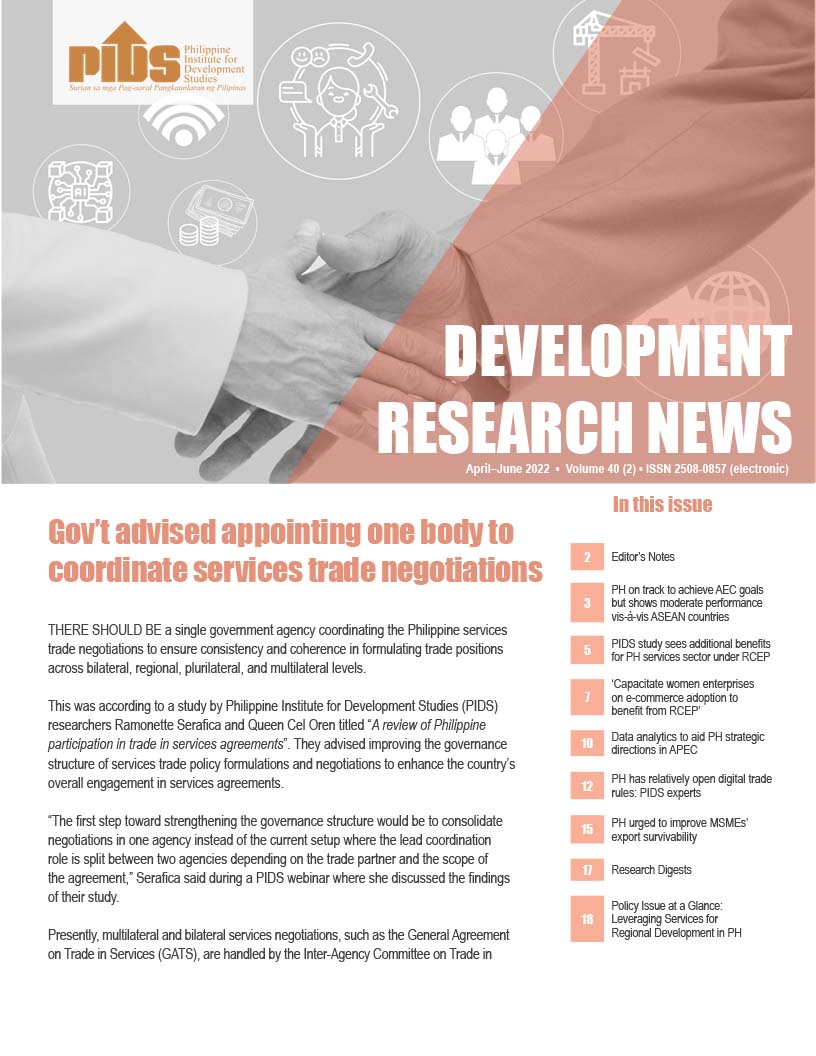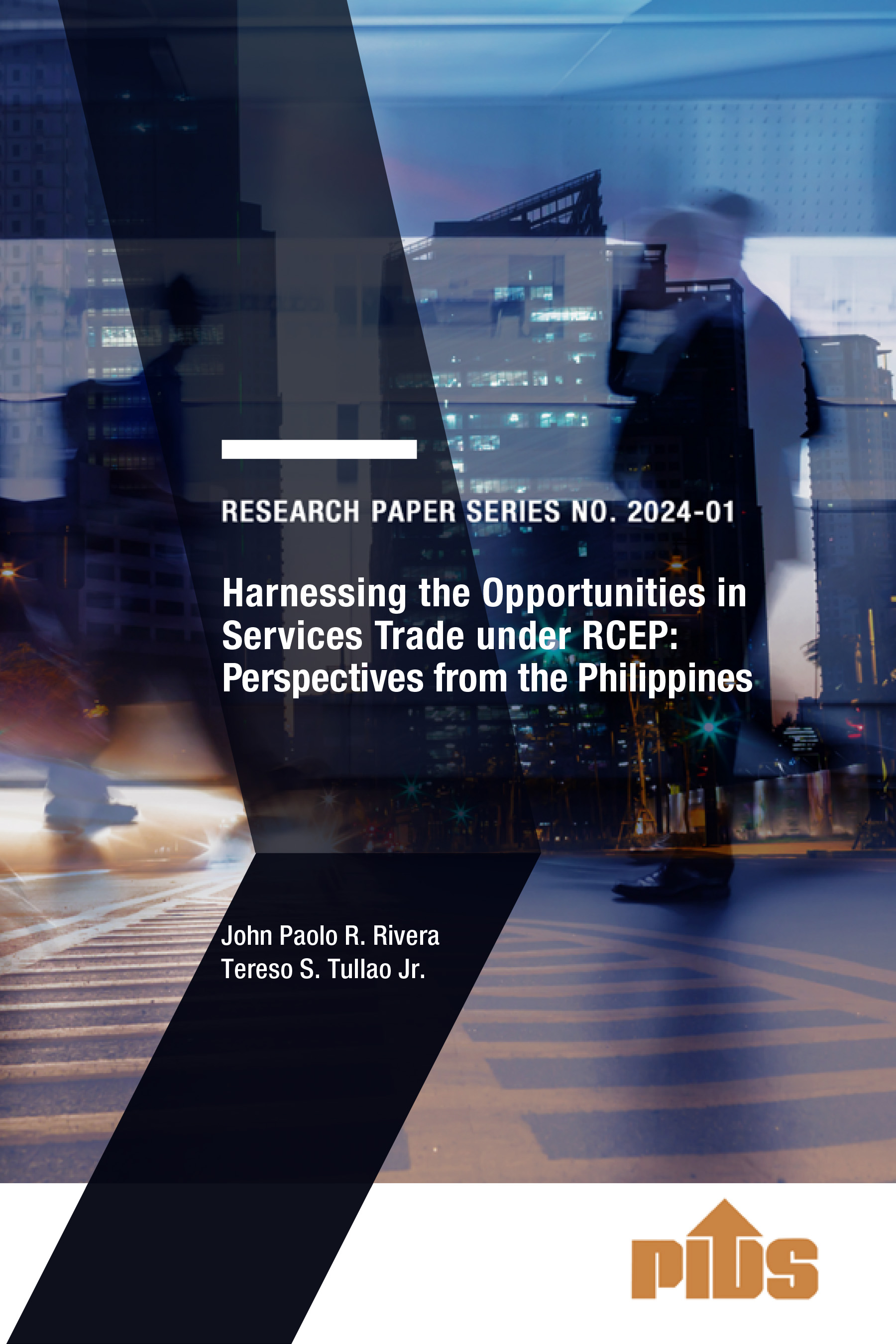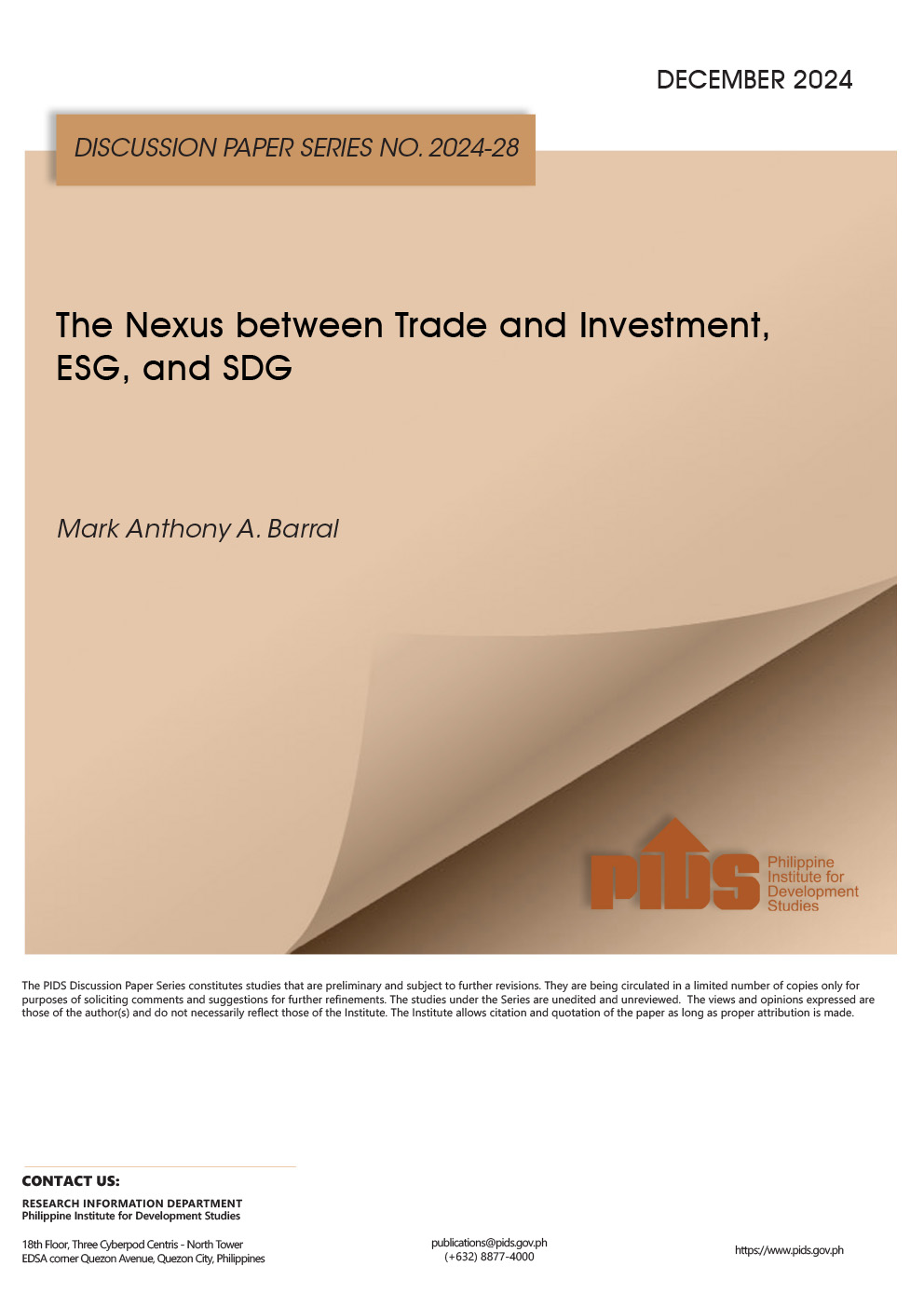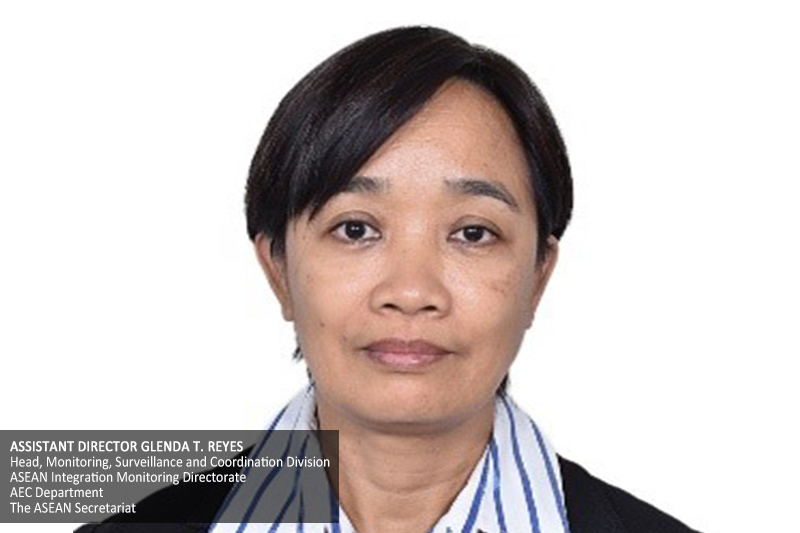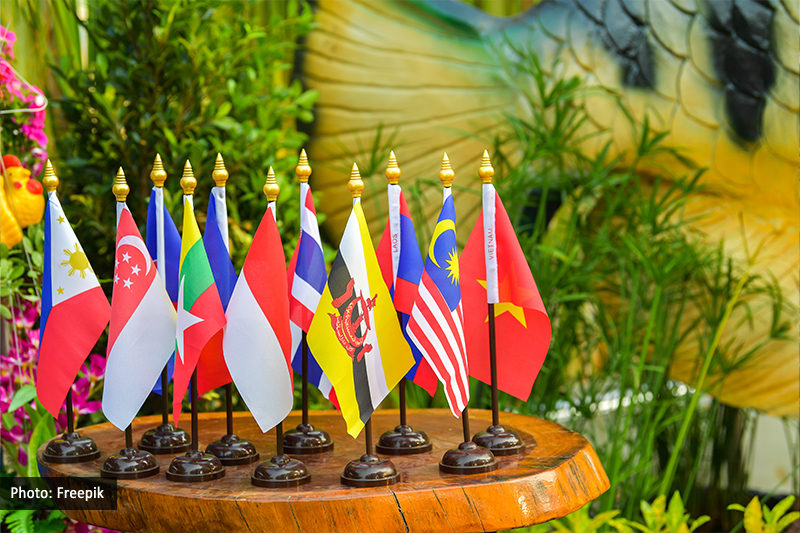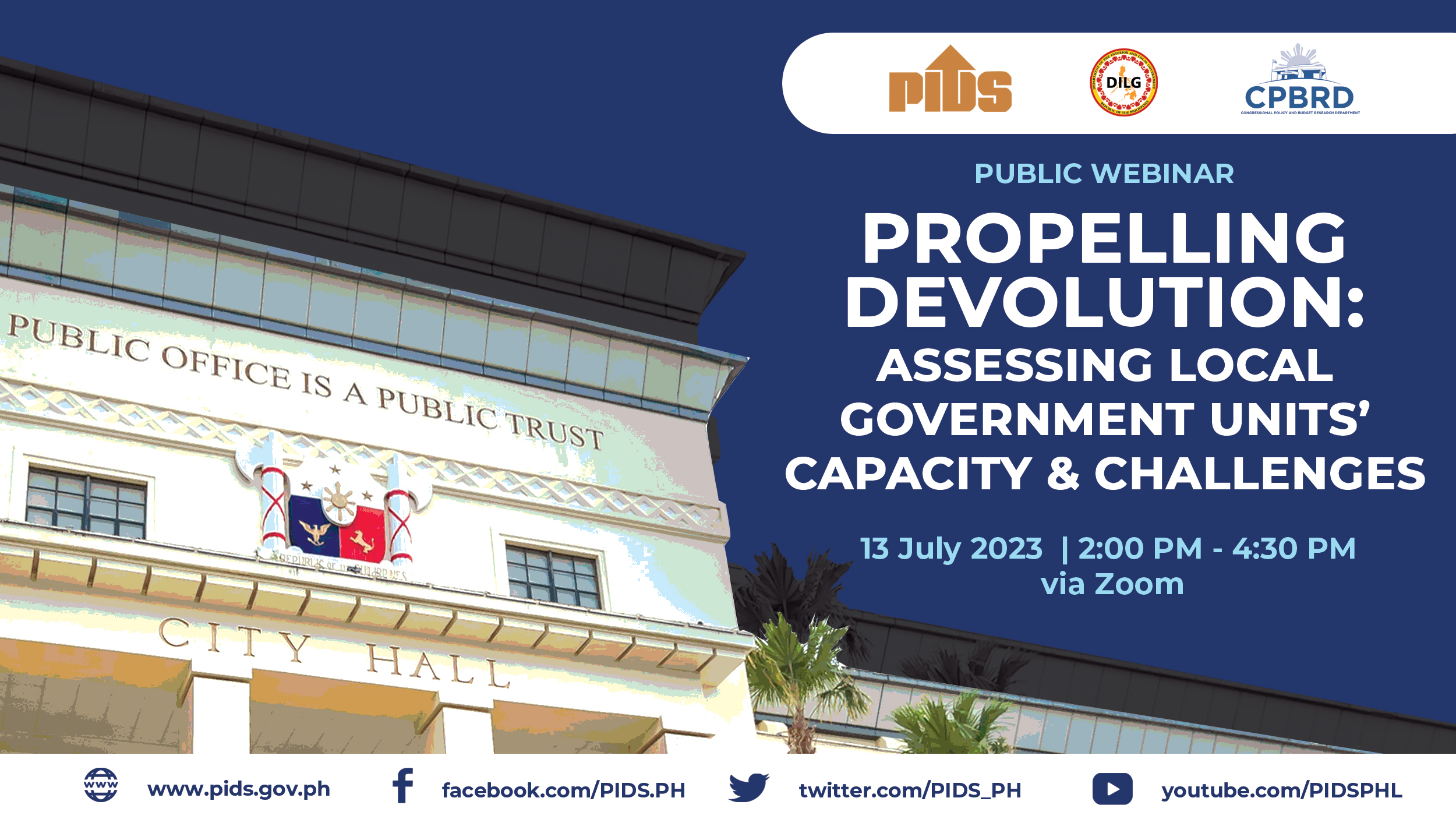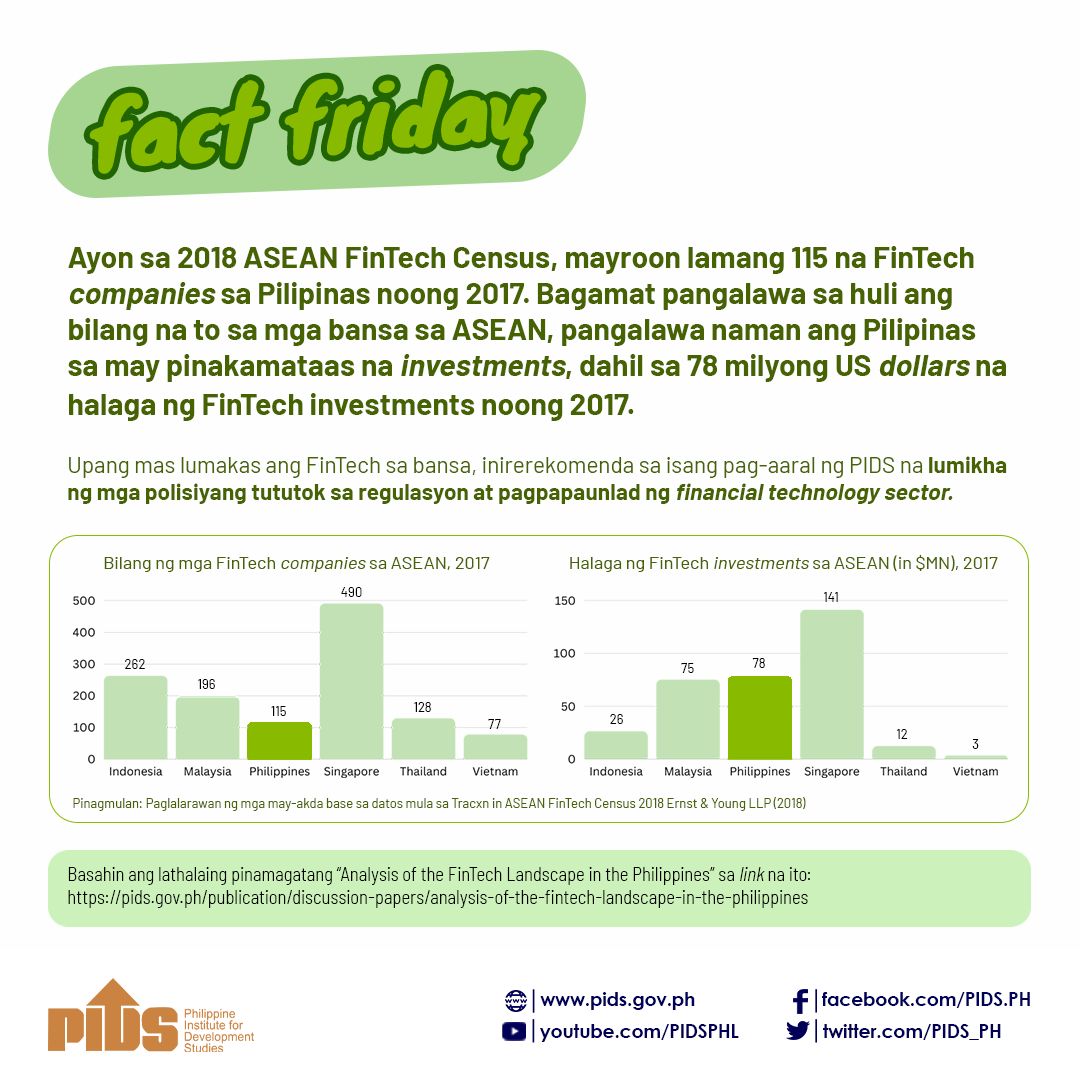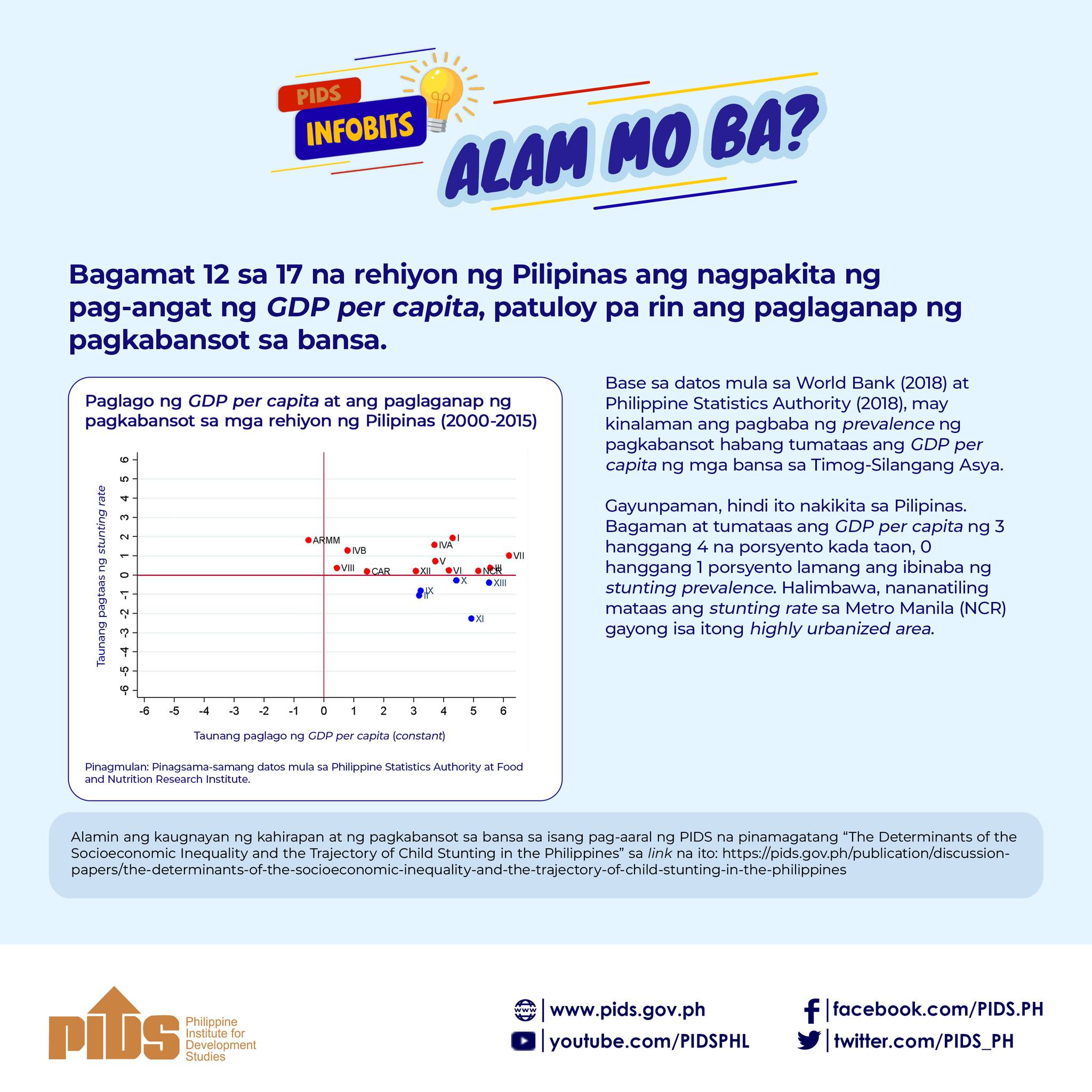The Philippine government is urged to intensify its move in liberalizing the goods sector to take advantage of the new trade opportunities under the rise of ASEAN integration and economic strength of Asia.
The Philippine Institute of Development Studies (PIDS) recommended that the country should continue liberalizing the goods sector by reducing import tariffs and conducting better monitoring of non-tariff barriers and trade surveillance.
According to PIDS, small and medium enterprises as well as direct and indirect exporters will have a greater role to play in the ASEAN's intensified economic integration.
There will also be an expansion of the service sector across the region, particularly in the areas of digital trade and financial and professional services.
Active participation on the Regional Comprehensive Economic Partnership (RCEP) agreement, with China, India, Australia, South Korea, and New Zealand" will "greatly help in promoting free flow of trade" in the ASEAN region.
Recent development in the global economy, particularly the withdrawal of the United States (US) from the Trans-Pacific Partnership (TPP), leaves the Philippines and other member-states of the Association of Southeast Asian Nations (ASEAN), in a vulnerable spot in the world market today.<
In a statement, Undersecretary Ceferino Rodolfo of the Department of Trade Industry (DTI) said that the departure of the US from the TPP, which is a multi-national trade agreement among countries that border the Pacific Ocean, will affect ASEAN countries like the Philippines in varying degrees and different levels.
He agreed that the ASEAN must work together to avoid the repeat of a Brexit and learn from the lessons of the TPP.
Rodolfo added that this major economic twist is an impetus to hasten the negotiations in the RCEP. (FREEMAN)
The Philippine Institute of Development Studies (PIDS) recommended that the country should continue liberalizing the goods sector by reducing import tariffs and conducting better monitoring of non-tariff barriers and trade surveillance.
According to PIDS, small and medium enterprises as well as direct and indirect exporters will have a greater role to play in the ASEAN's intensified economic integration.
There will also be an expansion of the service sector across the region, particularly in the areas of digital trade and financial and professional services.
Active participation on the Regional Comprehensive Economic Partnership (RCEP) agreement, with China, India, Australia, South Korea, and New Zealand" will "greatly help in promoting free flow of trade" in the ASEAN region.
Recent development in the global economy, particularly the withdrawal of the United States (US) from the Trans-Pacific Partnership (TPP), leaves the Philippines and other member-states of the Association of Southeast Asian Nations (ASEAN), in a vulnerable spot in the world market today.<
In a statement, Undersecretary Ceferino Rodolfo of the Department of Trade Industry (DTI) said that the departure of the US from the TPP, which is a multi-national trade agreement among countries that border the Pacific Ocean, will affect ASEAN countries like the Philippines in varying degrees and different levels.
He agreed that the ASEAN must work together to avoid the repeat of a Brexit and learn from the lessons of the TPP.
Rodolfo added that this major economic twist is an impetus to hasten the negotiations in the RCEP. (FREEMAN)

